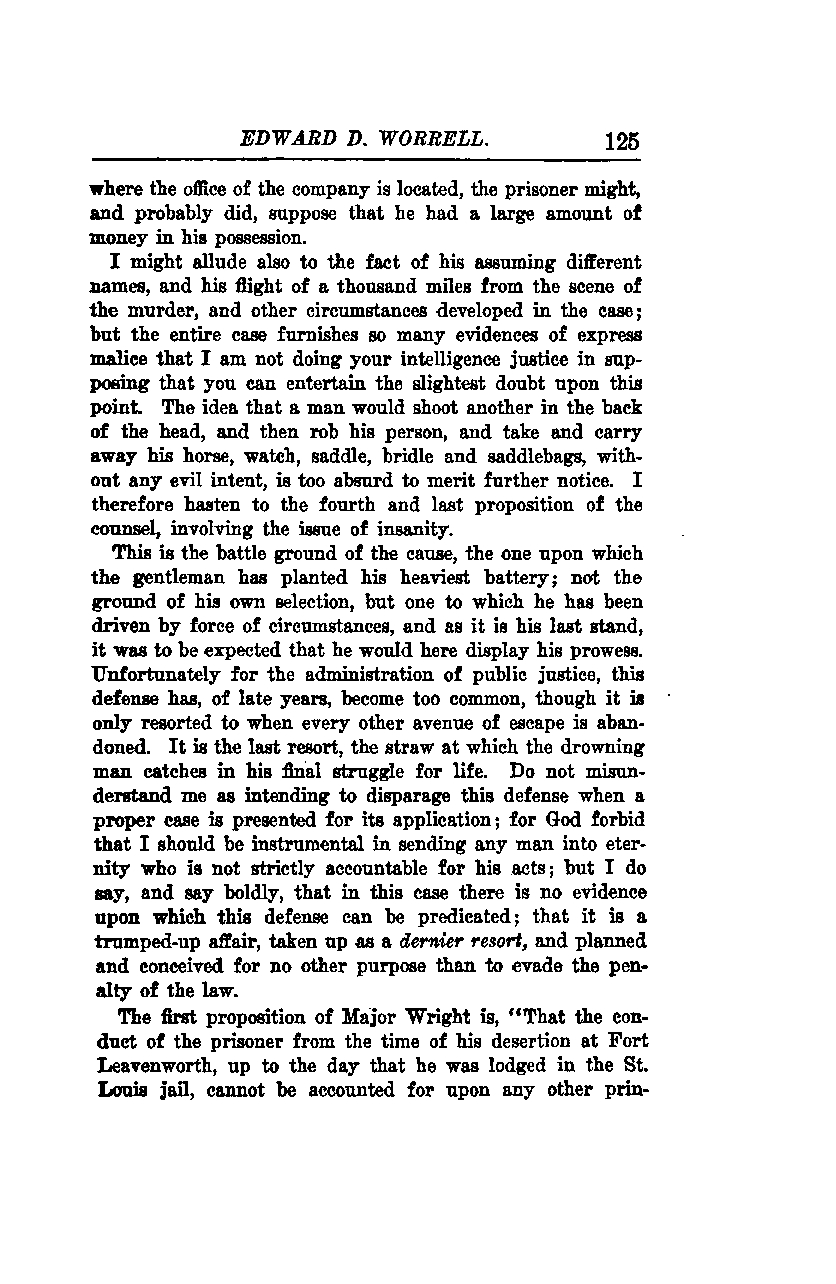
Here is the translated text as follows:
EDWARD D. WORRELL. 125
Where the office of the company is located, the prisoner might, and probably did, suppose that he had a large amount of money in his possession.
I might also allude to the fact of his assuming different names, and his flight of a thousand miles from the scene of the murder, and other circumstances developed in the case; but the entire case furnishes so many evidences of express malice that I am not doing your intelligence justice in supposing that you can entertain the slightest doubt upon this point. The idea that a man would shoot another in the back of the head, and then rob his person, and take and carry away his horse, watch, saddle, bridle, and saddlebags, without any evil intent, is too absurd to merit further notice. I therefore hasten to the fourth and last proposition of the counsel, involving the issue of insanity.
This is the battleground of the cause, the one upon which the gentleman has planted his heaviest battery; not the ground of his own selection, but one to which he has been driven by force of circumstances. As it is his last stand, it was to be expected that he would here display his prowess. Unfortunately for the administration of public justice, this defense has, of late years, become too common, though it is only resorted to when every other avenue of escape is abandoned. It is the last resort, the straw at which the drowning man catches in his final struggle for life. Do not misunderstand me as intending to disparage this defense when a proper case is presented for its application; for God forbid that I should be instrumental in sending any man into eternity who is not strictly accountable for his acts. But I do say, and say boldly, that in this case there is no evidence upon which this defense can be predicated; that it is a trumped-up affair, taken up as a dernier resort, and planned and conceived for no other purpose than to evade the penalty of the law.
The first proposition of Major Wright is, "That the conduct of the prisoner from the time of his desertion at Fort Leavenworth, up to the day that he was lodged in the St. Louis jail, cannot be accounted for upon any other principle..."